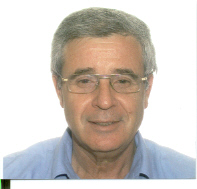
Gad Vitner
Ruppin Academic Center, School of Engineering, Emek - Hefer, Israel
Title: Nursing teachers teach and consult the next generation of nurses. They serve as role models for nursing students and guide students through the challenges that accompany them in learning to be a nurse (Greenwood, 2017). Nursing teachers provide instruction in the classroom and in some cases also work in clinical settings such as hospitals, clinics, and nursing homes. Most nursing schools also have clinical laboratories where students learn to perform basic nursing tasks such as managing medications, inserting catheters, giving injections and other hands-on skills, under the direct supervision of a nursing teacher. After the students have finished learning these skills they continue to the perceptorship, where they treat patients and perform the clinical skills taught in class under the supervision of the preceptor, who supervises trials and actual practice (Greenwood, 2017). The question is whether nursing teachers must have clinical experience as a nurse in the field, or is it enough for them to teach at nursing school? In this study I will present a discussion I held at a nursing school among the teachers on the role of nursing teachers and the essentialness of practice in the field, concurrent with their work as nursing school teachers. Another discussion held included a group of students as well. The purpose of the discussion was to examine the attitudes of those engaged in nursing and in nursing education with regard to the clinical effectiveness (clinical competence) of the nursing teacher and how it can be maintained and improved. The conclusions presented in the study, representing the personal attitudes of the teachers and students, offer educational and political recommendations for the national head of nursing.
Biography
Biography: Gad Vitner
Abstract
"No shows" is a critical management issue in outpatient clinics operations. It occurs in cases where the patient does not arrive to a scheduled appointment or a patient cancels the appointment at a point of time that does not enable appointing another patient. Research results present no shows of 10-30% with clinics like pediatrics with 80%. Research findings point out various causes as: geographical distance, long waiting time to the appointment date (patient forgets), long waiting time resulting in ‘no need to visit the clinic’ situation, period of the year (e.g. bad weather), socioeconomics issues, patient's age; native language; demographic sector and culture, leaving work place and children's care. The issue of "no shows" may be resolved using overbooking. More patients are scheduled for a given period to override the phenomena. Implementation may cause situations where in a specific hour both the scheduled patient and the patient due to overbooking arrive creating longer waiting time and service providers' overtime. An effective overbooking strategy balances patients' waiting time and service providers' idle time and minimizes overtime. The study researched a community neurological clinic. Daily service hours were 09:00-15:00. No shows level was 33% with 10 min waiting time. An economic analysis revealed that the optimal revenue will result with an overbooking of 10 patients. Various overbooking strategies were examined. Results show an improvement in number of treated patients, service providers' idle time together with minor increase in overtime hours.

